Incorporating NPK in hydroponic farming brings numerous benefits to growers. The increased nutrient availability ensures that plants receive the necessary elements for optimal growth and development. Hydroponic farmers can tailor their solutions to meet specific crop requirements by providing balanced nutrition through customizable nutrient formulations.

Furthermore, the efficient nutrient uptake and absorption in hydroponics result in faster growth rates and consistent crop quality. This method also reduces environmental impact by conserving water and minimizing runoff of excess nutrients. Hydroponic solution composition plays a crucial role in the success of hydroponic farming.
The hydroponic nutrient solution is carefully formulated to give plants all the essential nutrients they need to grow and thrive. The composition of the hydroponic solution typically includes macronutrients like nitrogen (N), phosphorus (P), and potassium (K) – commonly known as NPK, as well as secondary nutrients like calcium, magnesium, and sulfur.
Types of Nutrient Solutions for Hydroponics
Regarding hydroponic farming, one of the key factors for success is providing plants with the right nutrient solution. This liquid mixture contains all the essential elements plants need to grow and thrive without soil. Several nutrient solutions are available today, each designed to meet specific plant requirements. One popular option is a pre-mixed solution that already contains a balanced ratio of nutrients like nitrogen (N), phosphorus (P), and potassium (K).
These NPK solutions are convenient and easy to use, making them ideal for beginners or those who prefer a hassle-free approach. Another option is a custom-made nutrient solution where growers can adjust the NPK ratio based on their plants’ needs at different growth stages. This allows for more precise control over plant nutrition and ensures optimal growth. Organic nutrient solutions are also made from natural sources like fish emulsion or seaweed extract. These options appeal to those who prefer an eco-friendly approach while providing adequate crop nutrition.
Benefits of NPK in Hydroponic Farming
Increased Nutrient Availability
One of the key benefits of using NPK in hydroponic farming is increased nutrient availability. In traditional soil-based farming, plants rely on the nutrients present in the soil. Hydroponic nutrients are directly provided to the plants through a nutrient solution. By carefully controlling and maintaining this solution, growers can ensure that all essential nutrients are readily available for uptake by the plant’s root systems. The use of NPK fertilizers further enhances this nutrient availability.
In case you missed it: Best Fertilizers For Balcony Garden: Homemade, Organic, Compost, Natural, Liquid, NPK, and How And When to Apply
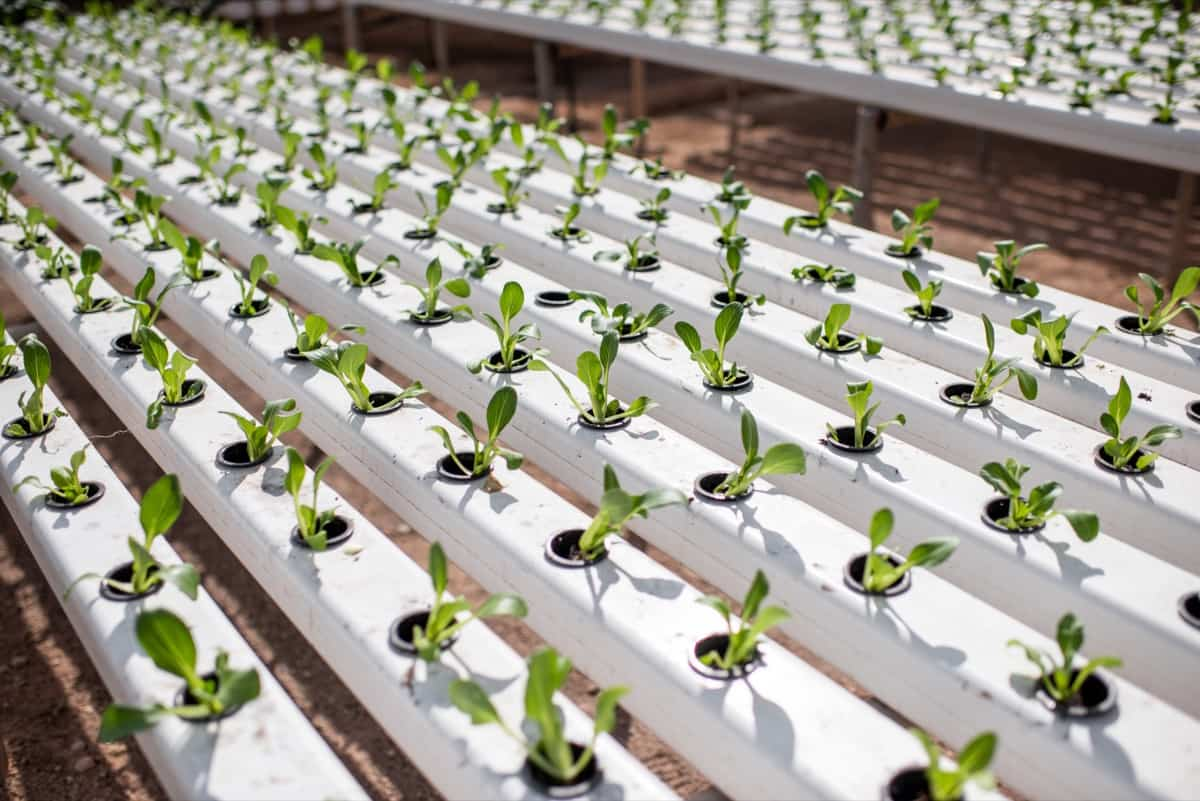
NPK stands for nitrogen (N), phosphorus (P), and potassium (K) – three vital macronutrients required for plant growth. These elements play crucial roles in various physiological processes within plants, including photosynthesis, root development, and fruit production. In hydroponics systems where precise control over nutrient levels is possible, growers can optimize the ratios of NPK to suit specific crop requirements at different growth stages. This ensures that crops receive an adequate amount of each nutrient without excess or deficiency.
Balanced Nutrition
Balanced plant nutrition is crucial for optimal growth and development in hydroponic farming. Hydroponic growers can ensure that plants receive all the essential elements they need to thrive by providing the right combination of nutrients in the nutrient solution. A balanced nutrient solution contains a mixture of macronutrients (nitrogen, phosphorus, and potassium) and micronutrients (calcium, magnesium, iron, and zinc).
Each element plays a specific role in plant health and function. For example, nitrogen promotes leafy green growth, while phosphorus supports root development. The hydroponic nutrient mix ratio is a crucial aspect of successful hydroponic farming. It involves finding the right balance of nutrients to support optimal plant growth and development.
The nutrient mix ratio typically refers to the proportion of nitrogen (N), phosphorus (P), and potassium (K) in the nutrient solution. By properly balancing these nutrients in the hydroponic system, growers can prevent deficiencies or toxicities hindering plant growth. This allows plants to access an adequate supply of each nutrient without being overwhelmed by excessive amounts.
Enhanced Plant Growth
Plants receive the essential nutrients for optimal development with nitrogen, phosphorus, and potassium. When plants have access to an abundant supply of these macronutrients, they can efficiently produce energy through photosynthesis and build strong cell walls. This leads to stronger stems and leaves, increased root development, and healthier plants. The availability of NPK in hydroponics also helps stimulate the production of enzymes and hormones within the plants.
In case you missed it: How and When to Prune Hydroponic Plants: Benefits, Techniques, and Methods
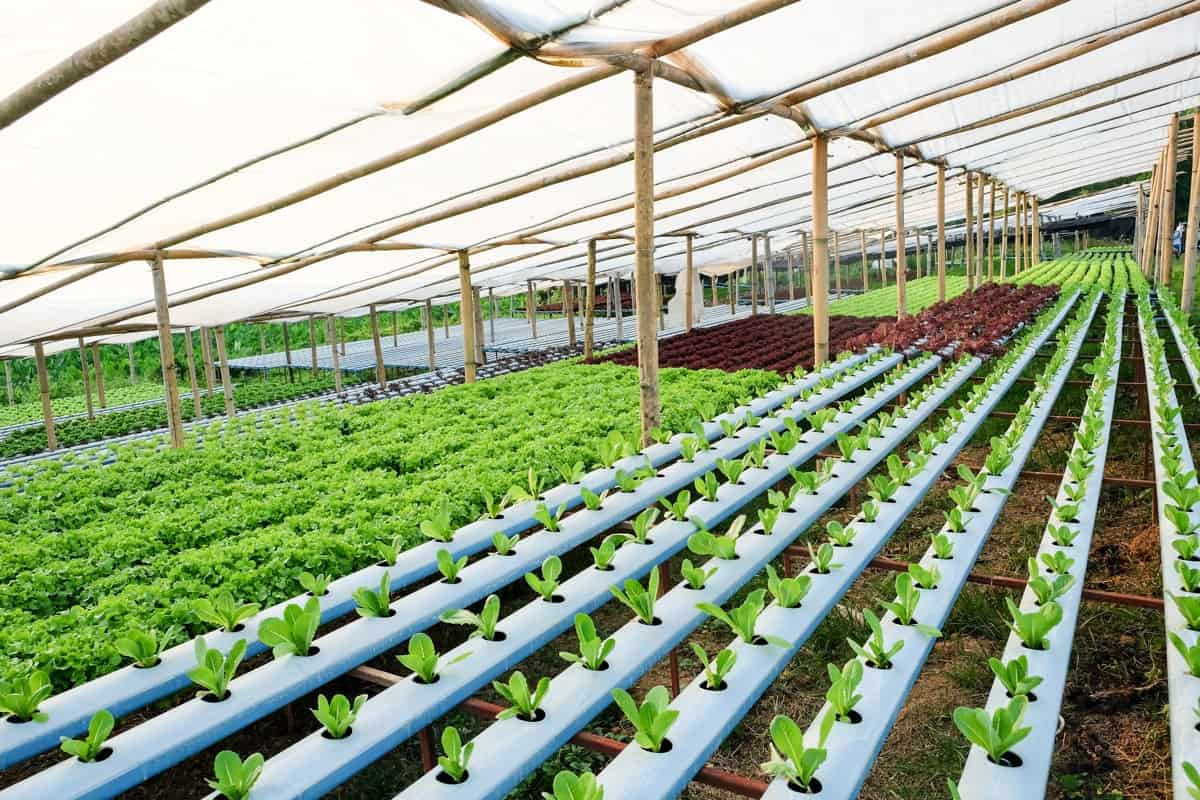
These biological compounds regulate growth processes, such as flowering, fruiting, and root formation. For example, in hydroponics, the NPK ratio for hydroponic Lettuce is a higher nitrogen level than other crops, as it aids in leaf formation and overall green coloration. Phosphorus supports root development and flowering, while potassium promotes strong stem growth and disease resistance.
Maintaining an ideal NPK ratio ensures lettuce plants receive nutrients at each growth cycle stage. This helps prevent nutrient deficiencies or excesses that could hinder productivity or quality. Moreover, growers can tailor their formulations to meet specific crop requirements by directly providing a targeted nutrient solution to the plant’s roots in a controlled environment like hydroponics.
Efficient Nutrient Uptake
In hydroponic farming, one of the key benefits of using NPK is its ability to promote efficient nutrient uptake by plants. This means the plants can absorb and utilize nutrients more effectively than traditional soil-based farming methods. One reason for this increased efficiency is that they directly deliver the nutrient solution to the root system in a hydroponic system. This eliminates barriers or obstacles that may hinder nutrient absorption, such as compacted soil or competing plants.
Additionally, since hydroponic systems provide a controlled environment for plant growth, growers have precise control over the pH levels and nutrient concentration in the solution. This allows them to optimize conditions for maximum nutrient uptake by adjusting these factors accordingly. By ensuring efficient nutrient uptake, hydroponic farmers can minimize waste and ensure that their crops receive all the necessary nutrients to grow and thrive. This leads to healthier plants and contributes to higher yields and better-quality produce.
Faster Growth Rates
By providing a balanced mix of essential nutrients, hydroponic systems can optimize plant growth and development. In traditional soil-based agriculture, plants have to work harder to extract nutrients from the soil. This can slow down their growth as they spend more energy on root development. In contrast, hydroponics delivers nutrients directly to the roots in an easily absorbable form.
In case you missed it: Hydroponic Tomato Problems: How to Fix, Treatment, and Solutions
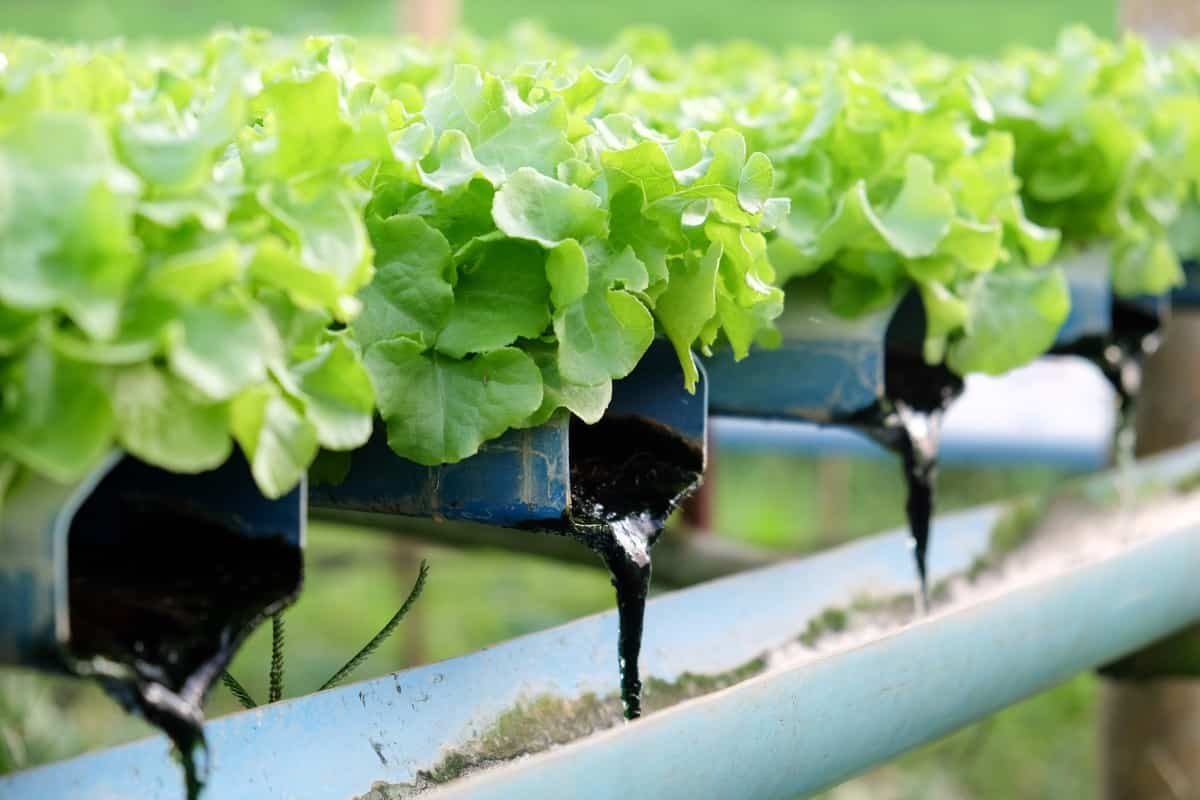
Plants can use these nutrients more efficiently and allocate their energy towards above-ground growth. With a steady supply of NPK, plants in hydroponic systems experience accelerated development and shorter growing cycles. This faster growth rate has numerous benefits for farmers. They can produce crops quicker, allowing for multiple harvests throughout the year. Additionally, fast-growing crops tend to be healthier and more resistant to pests and diseases.
Customizable Nutrient Formulations
Providing plants with the right balance of nutrients for optimal growth can be challenging with traditional soil-based farming. However, in hydroponics, growers have complete control over the nutrient solution. By fine-tuning and customizing the nutrient formulation, growers can ensure that their plants receive precisely what they need at each growth cycle stage. This allows for greater flexibility and precision in meeting specific plant requirements.
Moreover, customizable nutrient formulations also enable farmers to address any deficiencies or imbalances that may arise during plant development. By adjusting the ratios and concentrations of nitrogen (N), phosphorus (P), and potassium (K) in the nutrient solution, growers can correct any nutritional issues and promote healthy plant growth.
Additionally, this level of customization empowers farmers to experiment with different formulations tailored to specific crops or growing conditions. For example, a grower cultivating Lettuce hydroponically might have different nutrient requirements than someone growing Tomatoes hydroponically. Customizable formulas allow for these variations while providing optimum nutrition for each crop.
Efficient Nutrient Absorption
In hydroponic farming, efficient nutrient absorption is a crucial aspect that ensures optimal plant growth and development. Unlike traditional soil-based farming, where plants have to search for nutrients in the soil, hydroponics provides plants with direct access to essential nutrients. One of the key benefits of hydroponic farming is that it allows for precise control over nutrient levels in the root zone. This means plants can absorb exactly what they need when needed.
Hydroponics maximizes nutrient uptake efficiency by directly providing a well-balanced nutrient solution to the roots. The absence of soil in hydroponic systems eliminates potential obstacles or limitations that may hinder nutrient absorption. As a result, plants can absorb nutrients more effectively and efficiently. This leads to faster growth rates and healthier crops overall. Furthermore, because water is used as the medium in which nutrients are dissolved and delivered to the roots, there is no competition between plants for resources such as sunlight or space.
Each plant receives its fair share of nutrients without competing with neighboring plants. Additionally, growers can reduce waste and minimize environmental impact by optimizing nutrient absorption through hydroponics. Since only small amounts of nutrients are required compared to traditional farming methods, excess fertilizer runoff is less likely to contaminate groundwater sources.
In case you missed it: DIY Hydroponic Farming at Home: A Comprehensive Beginners Guide
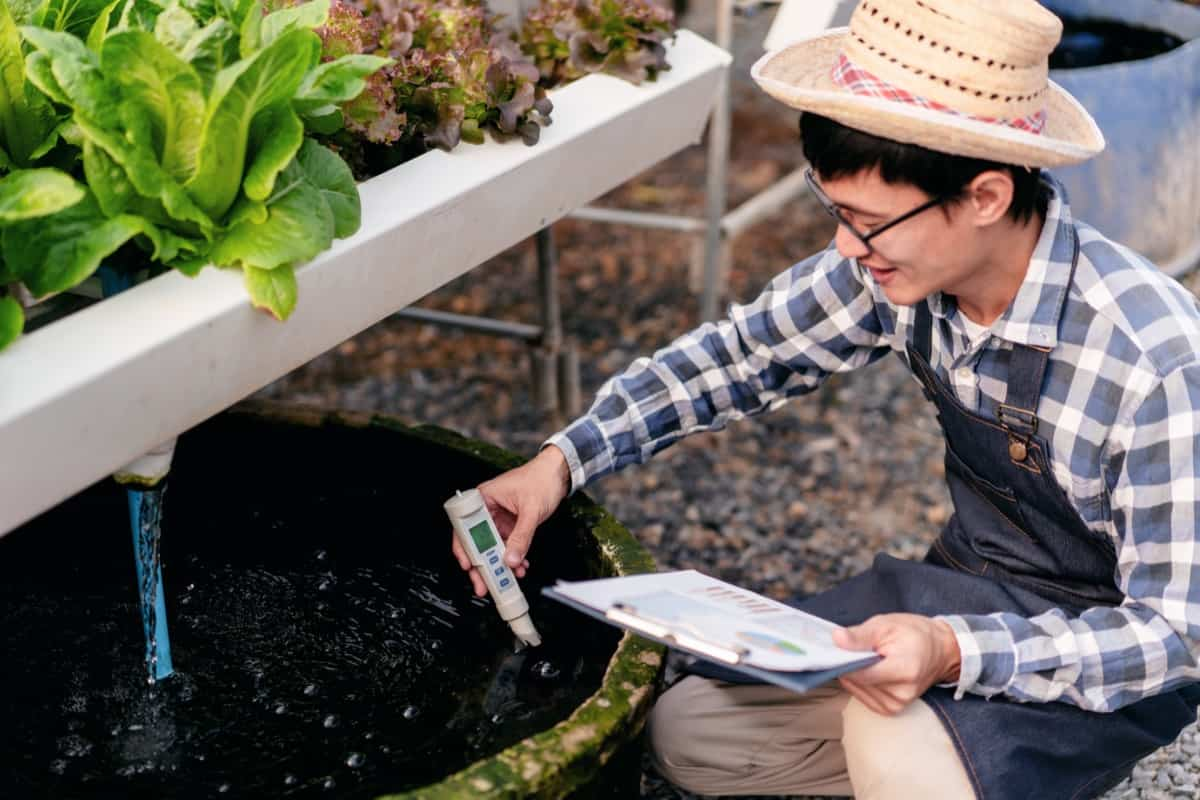
Reduced Environmental Impact
Hydroponic farming offers numerous benefits, including reduced environmental impact compared to traditional soil-based agriculture. Farmers can minimize the negative environmental effects by implementing hydroponic systems and working towards a more sustainable future. One way hydroponics reduces its environmental footprint is through water conservation. The closed-loop system allows for efficient nutrient uptake by plants while minimizing waste and runoff.
Additionally, hydroponics eliminates the need for harmful pesticides and herbicides commonly used in conventional farming practices. Another key aspect contributing to reduced environmental impact is the elimination of soil erosion. Hydroponics relies on growing plants without soil, preventing erosion caused by wind or heavy rainfall. This protects valuable topsoil and prevents sediment from contaminating nearby bodies of water.
Water Conservation
Water conservation is a key benefit of using NPK in hydroponic farming. Unlike traditional soil-based farming, hydroponics allows for precise control over water usage. In a hydroponic system, water is recirculated and reused, reducing the amount needed compared to conventional agriculture. Water conservation is important in hydroponics because it helps address the global issue of water scarcity. With increasing populations and climate change-induced droughts, preserving this precious resource has become crucial.
In hydroponics, plants are grown without soil, so less water is required for irrigation. Plant roots can efficiently absorb the nutrient-rich solution used in hydroponics, resulting in reduced evaporation and runoff. Additionally, the closed-loop nature of many hydroponic systems minimizes water loss through seepage or leakage. This saves valuable resources and prevents pollution from agricultural runoff entering nearby bodies of water.
Consistent Crop Quality
Regarding hydroponic farming, consistent crop quality is a major advantage. Unlike traditional soil-based agriculture, where the quality of crops can vary greatly depending on factors like soil composition and weather conditions, hydroponics allows for control over all aspects of plant growth. Every crop can be grown under optimal conditions, producing consistently high-quality produce.
One key factor contributing to consistent crop quality in hydroponics is the ability to provide plants with a balanced nutrient solution. By carefully measuring and adjusting the nutrient levels in the water, farmers can ensure that each plant receives exactly what it needs for healthy growth and development.
Another aspect of hydroponic farming that promotes consistent crop quality is plants’ efficient uptake of nutrients. In traditional soil-based agriculture, plants compete with nearby plants for limited nutrients. This can result in uneven distribution and uptake of essential elements. However, in hydroponics, each plant has its dedicated nutrient supply, ensuring it gets everything it needs without competition or inconsistency.
Additionally, the controlled environment provided by hydroponic systems also plays a role in maintaining consistent crop quality. Factors such as temperature, humidity levels, and light intensity can all be carefully regulated to create optimal growing conditions for each specific type of crop. This helps ensure uniform growth patterns and minimize variations between individual plants.
In case you missed it: 13 Best Cover Crops for Raised Beds and Why to Use Them
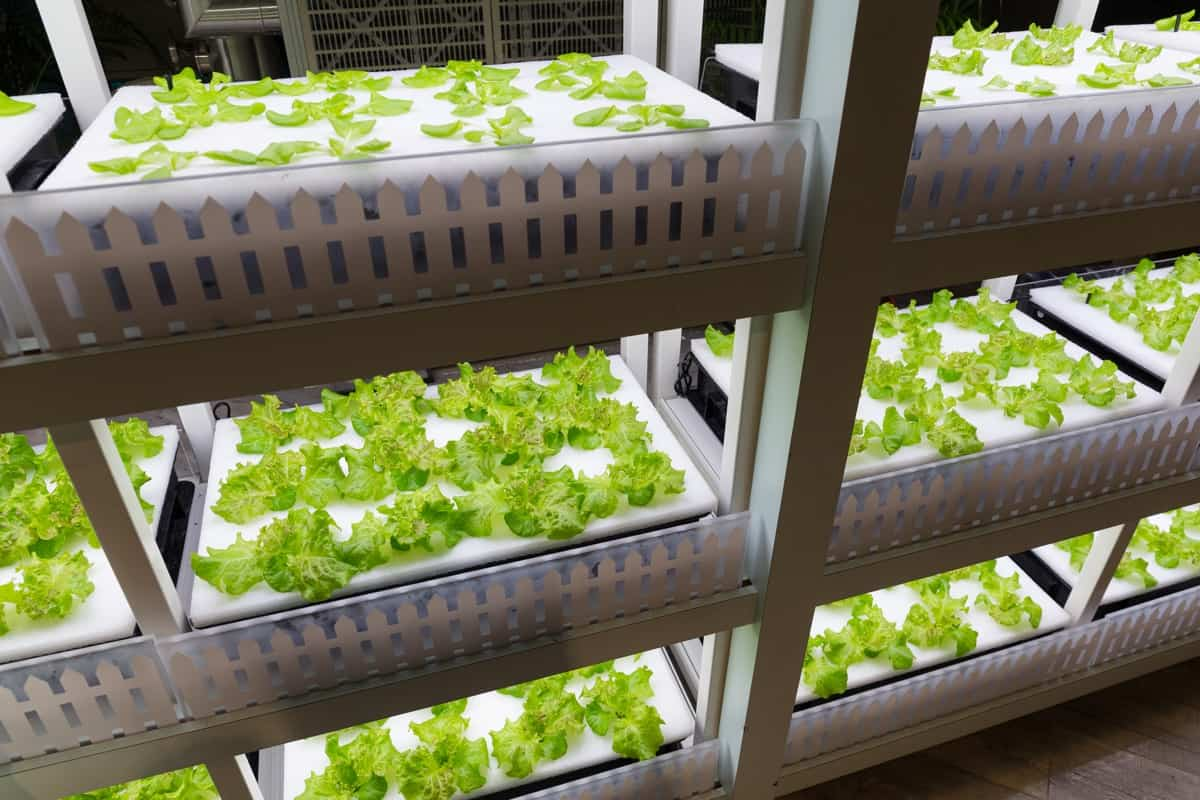
Conclusion
NPK plays a vital role in hydroponic farming by providing crucial nutrients to plants in a controlled environment. With its ability to enhance plant growth, improve nutrient efficiency, and support sustainable practices, it is clear why NPK is important for successful hydroponic cultivation. So, if you’re considering venturing into hydroponics or looking for ways to optimize your existing system, prioritize using NPK-based nutrient solutions.
- Flower Garden Designs and Layouts for Beginners
- Planting and Spacing Techniques in Papaya: A Beginner’s Guide
- Growing Gold: Essential Techniques for Planting Pineapples
- How to Make Kalanchoe Plant Bushy: Home Remedies and Solutions
- 11 Reasons Why Your Gardenia is Not Blooming: Home Remedies and Solutions
- Eco Elegance: The Guide to Designing a Drought-Tolerant Landscape
- Gardening on a Slope: Strategies for Hillside Landscaping
- Nourish and Flourish: Top Organic Mulches for Thriving House Plants
- Everything You Want to Know about Indian Mogra Flower: Discover Uses and Growing
- Green Thumb Success: Expert Tips for Cultivating Greenhouse Pumpkins All Year Round
- Maximize Growth & Flavor: The Ultimate Guide to Companion Planting in Herb Gardens
- How to Control Rhododendron Problems Naturally: Home Remedies and Organic Ways to Fix Them
- Natural Magic: The Remarkable Benefits of Cinnamon for Plants
- Best Steps to Revive Dying Tulip with Natural and Organic Treatment
- 10 Reasons Why Your Angel Trumpet is Not Blooming: Remedies and Treatment
- How to Fix Periwinkle Leaf and Flower-Related Problems: Natural Remedies and Solutions
- How to Fix Zinnias Leaf and Flower Problems: Discover Natural and Home Remedies
- Organic Steps to Induce Lemon Tree Flowers: A Comprehensive Guide
- Bloom Booster: Crafting the Perfect Homemade Bougainvillea Fertilizer
- Optimizing Growth: A Guide to Applying NPK Fertilizer for Potted Plants
- 10 Best Homemade Fertilizers for Rubber Plant: DIY Recipes and Application Method
- How to Boost Female Pumpkin Flowers: Effective Steps for More Flowers and High Yields
- Transform Your Indoor Garden: Top Benefits of Pink Salt for Houseplants
- 10 Best Homemade Fertilizers for Peacock Plants (Calathea): Easy DIY Guide
- Unlock Blooms: 9 Reasons Why Your Potted Chrysanthemum is Not Blooming
- 8 Reasons Why Your Potted Hibiscus is Not Blooming: Fix it with Simple Solutions
- Unlock Blooms: 9 Key Reasons Your Potted Frangipani Won’t Flower
- 10 Reasons Why Is My Ice Plant Not Blooming: Remedies and Treatment
- 10 Reasons Why My Potted Hydrangea Not Blooming: Treatment and Remedies
- 10 Reasons Why is My Wisteria Not Blooming: Remedies and Treatment
- 10 Reasons Why is My Goldfish Plant Not Blooming: Remedies and Treatment
- Maximize Your Space: Ultimate Guide to Balcony Gardening with Grow Bags
- 10 Reasons Why Your Iris is Not Blooming: Remedies and Treatment
- 10 Reasons Why Your Anthurium Plant is Not Blooming: Treatment and Remedies
- 10 Reasons Why Your Aquaponic Plants Are Not Flowering: Remedies and Treatment
- 10 Reasons Why Your Agapanthus is Not Flowering: Remedies and Treatment